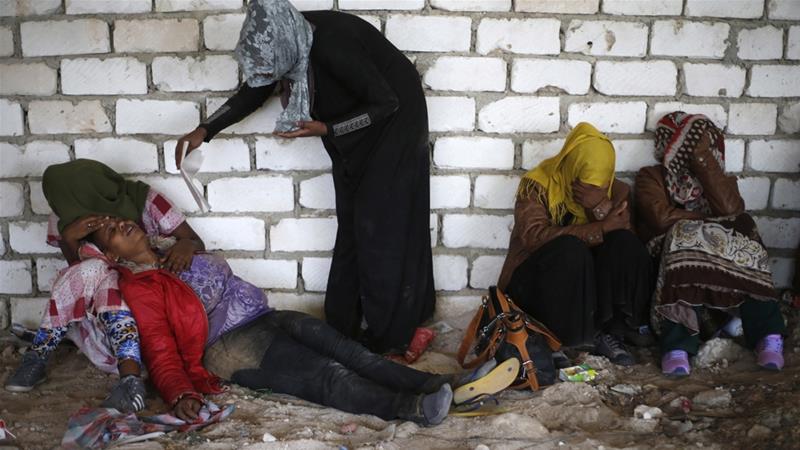Dozens of mass graves have been found in the Libyan city of Tarhuna, some 90 kilometres south of Tripoli, Interior Minister of the UN-backed government of Libya Fathi Bashagha, said.
“We discovered many terrible crimes committed by the militias that controlled the city of Tarhuna.
“Our services are now documenting those crimes,’’ Bashagha said in a statement.
Before the UN-backed government took control of it, Tarhuna was the main military operation centre for the east-based army.
“We found a container, inside which were prisoners who have been burnt alive.
“We also found a number of mass graves, where according to our initial reports, dozens of people were buried alive,’’ the statement added.
“Those militias must be held accountable for their hideous crimes and the politicians as well as military leaders, who have provided these militias with cover, must also be brought to justice,’’ the minister said.
There is yet no comment on the matter from the east-based army, which has been retreating in recent weeks in its military campaign against the troops of the UN-backed government.
Also on Wednesday, the UN Mission in Libya said that warring sides in the country have begun to engage in a new round of ceasefire talks, after heavy fighting around the central city of Sirte.
The east-based army has been fighting the UN-backed government troops for more than a year, aiming to take control of Tripoli and topple the UN-backed government.
The fighting has killed and injured hundreds of civilians and displaced more than 150,000 others.
The search for greener pasture
Through connections with human traffickers, migrants from Nigeria travel through the northern state of Kano to Agadez in Niger, and set off through the Sahara desert for Libya from Agadez on open cargo vehicles.
Many Nigerians in their attempt to escape the economic hardship in their home country leave for Libya which is the main gateway for people attempting to reach Europe by sea in search for greener pastures.
A report from the Nigerian Bureau of Statistics (NBS) said about 16 million people out of a total active labour force of 85 million were unemployed in the third quarter of 2017.
These folks in search for greener pastures get stucked in Libya and their dream journey to Europe becomes an imagined one.
In 2018, the Nigerian government called for more international cooperation in the fight against human trafficking, as the country continues to evacuate its citizens from Libya.
The Nigerian government in January 2018 began the immediate removal of some 5,500 people from the North African country after reports of abuse, slavery and torture, Aljazeera reports.
Many have been exploited by human traffickers as they attempted to pass through the war-torn Libya in a bid to reach Europe by sea.
Human trafficking
Hundreds of African refugees and migrants passing through Libya are being bought and sold in modern-day slave markets before being held for ransom or used as forced labour or for sexual exploitation, survivors have told the UN’s migration agency, International Organisation for Migration (IOM), Aljazeera reports.
People are bought for between $200 and $500 and are held on average for two to three months, Othman Belbeisi, head of the IOM’s Libya mission, said in Geneva.
“Migrants are being sold in the market as a commodity,” he said. “Selling human beings is becoming a trend among smugglers as the smuggling networks in Libya are becoming stronger and stronger.”
The refugees and migrants – many from Nigeria, Senegal and The Gambia – are captured as they head north towards Libya’s Mediterranean coast, where some try to catch boats for Italy.
Along the way, they are prey to an array of armed groups and people-smuggling networks that often try to extort extra money in exchange for allowing them to continue.
Most of them are used as day labourers in construction or agriculture.
Some are paid but others are forced to work for no money.
“About women, we heard a lot about bad treatment, rape and being forced into prostitution,” Belbeisi said.

 Join Daily Trust WhatsApp Community For Quick Access To News and Happenings Around You.
Join Daily Trust WhatsApp Community For Quick Access To News and Happenings Around You.


